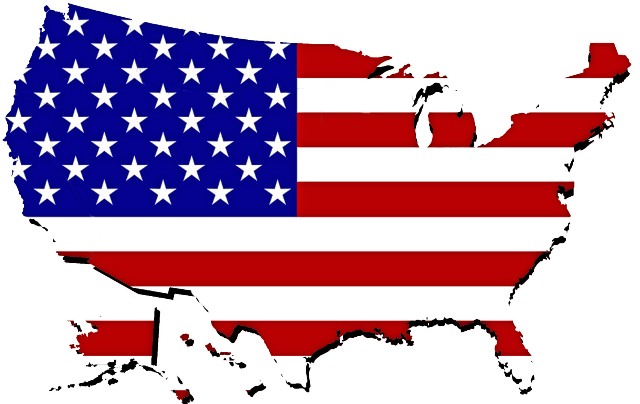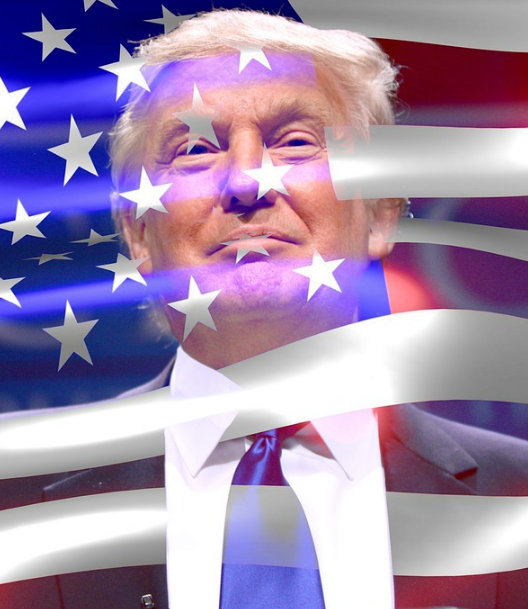international-affairs
Triumphant Trump and American Foreign Policy
 President Barack Obama, in his last official overseas tour to Greece, Germany, and Peru, reassured Europe that there would be continuity in American foreign policy under President-elect Donald Trump. While Obama tried to convince his interlocutors about continuity in US policy, Trump’s statements during the campaign brought alarm and concern to America’s allies. Obama himself had called Trump as ‘unqualified’ to be President and a peddler of ‘wacky ideas’, while touring Asia in September 2016. Even if a good part of Trump’s rather colorful choice of words was meant to attract voters, his remarks have set off alarm bells in world capitals. What then could be the impact of the Trump victory on US foreign policy?
President Barack Obama, in his last official overseas tour to Greece, Germany, and Peru, reassured Europe that there would be continuity in American foreign policy under President-elect Donald Trump. While Obama tried to convince his interlocutors about continuity in US policy, Trump’s statements during the campaign brought alarm and concern to America’s allies. Obama himself had called Trump as ‘unqualified’ to be President and a peddler of ‘wacky ideas’, while touring Asia in September 2016. Even if a good part of Trump’s rather colorful choice of words was meant to attract voters, his remarks have set off alarm bells in world capitals. What then could be the impact of the Trump victory on US foreign policy?
Relations with Russia
While Obama could have handled President Vladimir Putin better, his persistent demonization of the Russian President and inability to establish a rapport with him painted US policy into a corner. Even if Putin annexed the Crimea in brazen disregard for international law, the US played a key role in creating a situation in Ukraine that justified Putin’s fears about being encircled by NATO. Obama should have taken into account the fact that Russia had a naval base in the Crimea since 1784. In the aftermath of his victory, Trump and Putin have agreed to mend the US-Russia relations.
The Europeans will be relieved if sanctions against Russia are lifted after Putin gives some concessions in Ukraine. Possibility exists of the US and Russia working together in global hotspots like Syria for a cease-fire to be followed by coordinated attacks on the Islamic State. If the Islamic State loses all its territory in Syria and Iraq as a result, Trump might claim his first foreign policy success. Putin’s Russia got closer to China as the Obama-led West ostracized him. Putin would prefer to have good relations with both Beijing and Washington. Such a change will render the Moscow-Beijing relations less unequal.
NATO and US military protection to allies
Trump called NATO ‘obsolete’. Trump might be keen on extracting a price for the protection given by the US military, but he will not alienate the powerful Congress-military-industrial complex that has not only maintained NATO but expanded it. He is likely to increase the US defense budget. NATO therefore may not be in danger of an early death. The Europeans though might have to pay more for their security. The same consideration applies mutatis mutandis to other American allies like Saudi Arabia, Japan, and South Korea.
China
China has reason to be worried. The bilateral trade shows a deficit of $367 billion for US in 2015. Trump has accused China, not incorrectly, of resorting to currency manipulation. Trump as candidate had proposed a 45 per cent tariff on import of goods from China. Imposition of such a tariff might not be feasible but a trade war cannot be ruled out. Another possibility could be that Trump, who views himself to be a master deal maker, might enter into an agreement with Beijing. What could possibly be the elements of such a deal between the current sole superpower and the superpower in waiting? Will Trump concede China’s claims on the South China Sea and the East China Sea and thus dismantle Obama’s ‘pivot’ in the Far East? What will China give in return? Are we going to see a new bipolar world?
Climate Change
While it would be rather difficult for Trump to withdraw from the climate change treaty, he could go slowly with compliance and other countries might be tempted to imitate the US, with negative consequences for the world.
North American Free Trade Agreement (NAFTA) and Globalization
NAFTA was signed in 1994. The US-Mexico trade balance changed from $1.7 billion surplus for US in 1993 to $54 billion deficit in 2014. Evidently, many US companies moved to Mexico attracted by the low wages and US lost thousands of jobs. Reports note that the automobile sector alone has lost 350,000 jobs since 1994. Trump will no doubt have to take some remedial action. As regards the threat to build a wall at the border at Mexico’s cost, Trump has already climbed down. His plan to deport under 3 million illegal’s with criminal record is slightly exaggerated as the total of such persons is believed to be less than 200,000. It is worth noting that Obama did deport 2.5 million under due process of law and without undue publicity.
The Brexit vote cheered up and emboldened Trump. Will he able to reverse the huge train of globalization? It is true that globalization needs correction in many respects. Correction is possible, but a reversal is unlikely. The Trans-Pacific Partnership linking US with 11 countries excluding China and the EU-US Trade and Investment Partnership are not going to move ahead. However, Trump himself has benefitted from globalization as there are Trump towers in Pune, Mumbai, Vancouver, Toronto, Rio de Janeiro and elsewhere. Trump has exploited the domestic discontent over globalization, but it does not follow that he is against globalization per se.
 Trump and India
Trump and India
Trump knows India only as an entrepreneur. As he has no foreign policy experience, he will take time to develop the ability to see the big strategic picture and fit India in it. He could be vaguely aware that thousands of Indians work in the US and contribute significantly to its economy. He might review the procedure for granting H1B visa and could also possibly reduce the number of such visas granted to Indians.
Trump and Israel
Trump could have a smoother relationship with Israel than did Obama. The influence of the pro-Israeli lobby could increase.
Trump and European Elections
We also have to watch Trump’s impact on the forthcoming European elections. Just as Trump got emboldened with the Brexit vote, the Far Right in Europe has been comforted by Trump’s victory. In December 2016, there will be a referendum in Italy and an election in Austria with the Far Right Freedom Party’s candidate Norbert Hofer standing a good chance to get elected as President. In March 2017, the Netherlands will vote and the Far Right Geert Wilders is a serious rival to the current Prime Minister Mark Rutte. The French will vote in April/May 2017 and Marie Le Pen believes that her chances have improved dramatically. Later in the year, by September/ October, Germany will go the polls. If the Far Right makes significant gains in Italy, Austria, and the Netherlands, we might be witnessing the beginning of the end of the European Union.
Trump and His Advisers
Trump could be characterized as a neo-con without the penchant for going to war as early as possible when confronted with a crisis. Former President George W. Bush was tutored on foreign policy issues by Condoleezza Rice, who subsequently became his National Security Adviser and, later, Secretary of State. It was the George H.W. Bush Bush who arranged for the tuition. Trump needs tutoring though he might not be inclined to be tutored.
Trump’s Secretary of State would play a pivotal role in implementing his foreign policies. If, as some reports suggest, Rudolph Giuliani, the former Mayor of New York, is appointed to that post, US diplomacy might take a turn away from the compromise-seeking Obama-Kerry team. In 1995 for instance, Giuliani sent in policemen to evict Yasser Arafat from the Lincoln Centre where he was enjoying Beethoven’s Ninth Symphony. Giuliani defended his action by saying that Arafat was a terrorist.
By appointing Steve Bannon as his chief strategic adviser, Trump has sent out a troubling signal. Bannon had in the past made troubling statements, including remarking that there were too many CEOs from South Asia in the US and that it was harmful to ‘civil society’. This appointment does not square with the promise in his victory speech that he would make efforts to heal the divisions within America. While the continuing anti-Trump demonstrations in many American cities cannot change the election result, Trump should be aware of the fact that a little more than half the citizens voted for Hillary Clinton. To govern successfully, he needs to reach out to those who did not vote for him, rather than alienate them.
The above article written by Ambassador K.P. Fabian was initially published in Institute for Defence Studies and Analyses (IDSA) website http://www.idsa.in/idsacomments/triumphant-trump-and-american-foreign-policy_kpfabian_221116
November 22nd, 2016 | category:international-affairs |
 President Barack Obama, in his last official overseas tour to Greece, Germany, and Peru, reassured Europe that there would be continuity in American foreign policy under President-elect Donald Trump. While Obama tried to convince his interlocutors about continuity in US policy, Trump’s statements during the campaign brought alarm and concern to America’s allies. Obama himself had called Trump as ‘unqualified’ to be President and a peddler of ‘wacky ideas’, while touring Asia in September 2016. Even if a good part of Trump’s rather colorful choice of words was meant to attract voters, his remarks have set off alarm bells in world capitals. What then could be the impact of the Trump victory on US foreign policy?
President Barack Obama, in his last official overseas tour to Greece, Germany, and Peru, reassured Europe that there would be continuity in American foreign policy under President-elect Donald Trump. While Obama tried to convince his interlocutors about continuity in US policy, Trump’s statements during the campaign brought alarm and concern to America’s allies. Obama himself had called Trump as ‘unqualified’ to be President and a peddler of ‘wacky ideas’, while touring Asia in September 2016. Even if a good part of Trump’s rather colorful choice of words was meant to attract voters, his remarks have set off alarm bells in world capitals. What then could be the impact of the Trump victory on US foreign policy?

 Trump and India
Trump and India